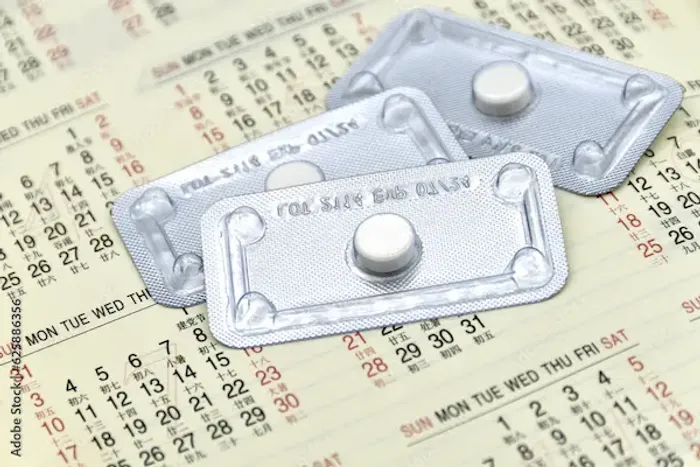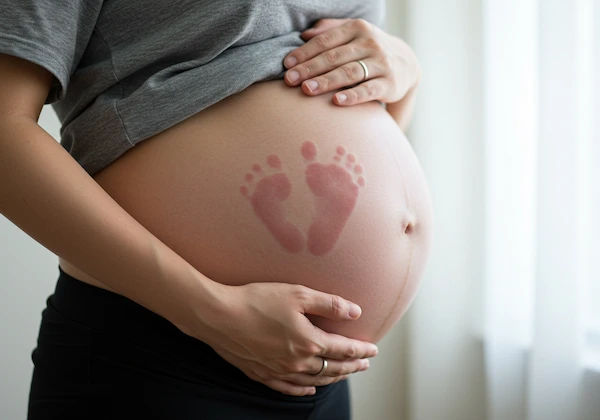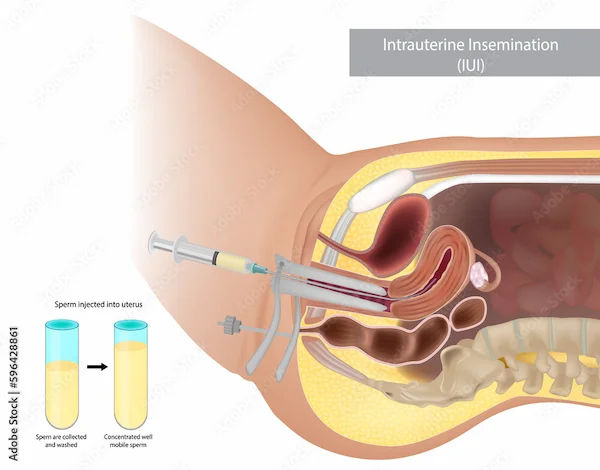Guide to What Emergency Contraception
Know about the emergency contraception, comparison with abortion pill, efficacy, how it works, side effects, myths on emergency contraception and more.

Written by Dr. Md Yusuf Shareef
Reviewed by Dr. Shaik Abdul Kalam MD (Physician)
Last updated on 13th Jan, 2026

Introduction
Finding yourself in a situation where you need emergency contraception can be overwhelming. It’s important to know that you are not alone, and safe, effective options are available to prevent pregnancy after unprotected intercourse or contraceptive failure. Often called the "morning-after pill," emergency contraception is a form of backup birth control that can be used within a specific window of time after sex. This article will serve as your step-by-step guide, demystifying the different types—from over-the-counter pills to the Copper IUD—and providing clear facts to dispel common myths. Our goal is to equip you with the knowledge to act quickly and confidently, while also emphasising that emergency contraception is for emergencies and not a substitute for regular birth control. If you have immediate concerns, remember that you can always consult a doctor online with Apollo24|7 for confidential and prompt advice.
What is Emergency Contraception?
Emergency contraception (EC) refers to methods used to prevent pregnancy after unprotected sexual intercourse. Its primary purpose is to reduce the risk of conception, acting as a second chance to prevent an unplanned pregnancy. It is not intended for routine use but is a vital tool for emergencies, such as when a condom slips or breaks, after a sexual assault, or if you've missed two or more combined oral contraceptive pills in a row.
Consult a Top Gynaecologist for Personalised Advice
Emergency Contraception vs. Abortion Pill: A Critical Distinction
This is the most important concept to understand. Emergency contraception works to prevent pregnancy, while the abortion pill terminates an existing pregnancy.
Emergency Contraception: It works before a pregnancy is established. It primarily delays or inhibits ovulation (the
release of an egg), so there's no egg for sperm to fertilize. It does not disrupt an implanted embryo and is not effective if
you are already pregnant.
Medical Abortion Pill: This involves medication (like mifepristone) that ends an early pregnancy by blocking the hormone progesterone, which is needed for the pregnancy to continue. It works after fertilisation and implantation have occurred.
The Two Main Types of Emergency Contraception
There are two primary forms of emergency contraception available: pills and an intrauterine device (IUD).
Understanding the difference is key to choosing the right option for you.
1. Emergency Contraceptive Pills (ECPs)
These are the most commonly known and accessed forms of EC. There are two main kinds, and their availability differs.
The Progestin-Only Pill (Levonorgestrel)
- Brand Names: Plan B One-Step, Next Choice, I-Pill, and various generic store brands.
- How to Get It: Available over-the-counter without a prescription for all ages at most pharmacies and drugstores. It's
often found in the family planning aisle or behind the counter—just ask the pharmacist. - Timeline: Most effective when taken within 72 hours (3 days) of unprotected sex, but some research shows it can still
offer some reduction in risk up to 120 hours (5 days), though effectiveness decreases over time.
1. The Prescription Pill (Ulipristal Acetate)
- Brand Name: Ella (also sold as EllaOne in some regions).
- How to Get It: Requires a prescription from a doctor or healthcare provider. You can get a prescription quickly through
telemedicine services like Apollo24|7. - Timeline: Effective for up to 120 hours (5 days) after unprotected sex. It is generally considered more effective than
levonorgestrel pills, especially between 72-120 hours and for women with a higher BMI.
2. The Copper-T Intrauterine Device (IUD)
- This is the most effective form of emergency contraception.
- How it Works: A healthcare professional must insert the T-shaped device into the uterus. It works by affecting sperm
motility and preventing fertilisation. It is not a hormonal method. - Effectiveness: Over 99% effective at preventing pregnancy when inserted within 5 days of unprotected sex.
- Added Benefit: Unlike the pills, which are a one-time use, the Copper IUD provides continuous, highly effective birth
control for up to 10-12 years after insertion. It can be removed at any time by a healthcare provider if you wish to
become pregnant.
How Effective is Emergency Contraception?
Effectiveness is not 100% and varies based on the method and, most critically, time.
How Timing Impacts Effectiveness
The universal rule for emergency contraception is "the sooner, the better." All methods are most effective the closer they
are taken to the time of unprotected intercourse. The mechanism of delaying ovulation is most potent if the pill is taken
before the body's natural luteinizing hormone (LH) surge, which triggers ovulation.
Factors That Can Influence Effectiveness
- Body Weight/BMI: Research indicates that levonorgestrel-based pills may be less effective for individuals with a BMI
over 25 and may not work at all for those with a BMI over 30. Ulipristal acetate (Ella) appears to maintain its
effectiveness in women with higher BMIs, and the Copper IUD is not affected by weight. - Vomiting: If you vomit within 2-3 hours of taking an ECP, the medication may not have been absorbed. You may need
to take another dose or consider the Copper IUD.
How Does Emergency Contraception Work?
Understanding the science can help clear up confusion.
The Science Behind the Morning-After Pill
Both types of ECPs work primarily by delaying or inhibiting ovulation. They trick your body into thinking it has
already ovulated, preventing the release of an egg from the ovary. If there's no egg, sperm cannot fertilise it, and
pregnancy cannot occur. They do not work by disrupting an already implanted fertilised egg.
How the Copper IUD Prevents Pregnancy
The Copper IUD creates an environment in the uterus that is toxic to sperm, impairing their movement and preventing
them from reaching the egg. If fertilisation has already occurred, it may also prevent the fertilised egg from implanting
in the uterine lining.
How and Where to Get Emergency Contraception
Accessibility is crucial in an emergency.
Accessing Emergency Contraceptive Pills
- Pharmacies: Levonorgestrel pills (like Plan B) are widely available without a prescription.
- Health Clinics: Planned Parenthood and other community health centres offer EC, often at a reduced cost.
- Telemedicine: For Ulipristal Acetate (Ella), which requires a prescription, a quick online consultation with a doctor on
Apollo24|7 can provide a prescription sent directly to your pharmacy.
Getting a Copper IUD for Emergency Use
This requires an appointment with a gynaecologist or a healthcare provider at a clinic or hospital that offers IUD
insertion services. It's a more involved process than taking a pill, but it offers the best efficacy and long-term protection.
Potential Side Effects and What to Expect
Side effects from emergency contraception are usually mild and temporary, lasting a few days.
- Common Side Effects: Nausea, headache, abdominal pain, fatigue, dizziness, and breast tenderness. Some women may
experience irregular bleeding or spotting until their next period. - Your Next Period: Your next menstrual period may come earlier or later than expected. If your period is more than a
week late, it is advisable to take a pregnancy test or consult a doctor.
Common Myths About Emergency Contraception Debunked
- Myth: It causes an abortion.
Fact: It prevents pregnancy from occurring and does not work if you are already pregnant.
- Myth: It's harmful to your future fertility.
Fact: There is no evidence that EC affects your long-term ability to get pregnant.
- Myth: You can use it as regular birth control.
Fact: It is less effective than regular birth control methods and is not intended for frequent use.
Conclusion
Navigating the need for emergency contraception can be stressful, but being armed with accurate information is your
greatest asset. Remember, you have safe and effective options, from readily available pills to the highly effective Copper IUD. The key is to act swiftly, understand how each method works, and choose the one that best suits your timeline and health profile. While emergency contraception is a vital backup, it underscores the importance of having a reliable, ongoing birth control plan. If you have any doubts or questions, never hesitate to seek professional medical guidance. Your reproductive health is a priority, and taking proactive steps, whether in an emergency or for long-term planning, is a powerful act of self-care. If you need immediate, confidential advice, booking a quick online consultation with a gynaecologist on Apollo24|7 can provide the clarity and support you need.
Consult a Top Gynaecologist for Personalised Advice
Consult a Top Gynaecologist for Personalised Advice

Dr. Mona Yadav
Obstetrician and Gynaecologist
19 Years • MBBS, MD (Obstetrics & Gynaecology)
Dombivli
Nulife multispeciality, Dombivli

Dr. Parul Sharma
Obstetrician and Gynaecologist
8 Years • MBBS, MS (Obstetrics & Gynaecology)
New Delhi
THE DOCTORS NESST, New Delhi

Dr. Debajyoti Goswami
Obstetrician and Gynaecologist
10 Years • MBBS,D.G.O(DNB),Adv. Infertility Tech.(AIIMS),Fellowship in Diabetes(U.K),Comprehensive Abortion Care(Govt. Of W.B), Certificate in Clinical Embryology(AIIMS, BHUBANESWAR)
Bankura
D.G Clinic, Bankura
(25+ Patients)
Dr. K Anusha
Obstetrician and Gynaecologist
4 Years • MBBS, DGO
Yemmiganur
SRINIVASAA HOSPITAL, Yemmiganur
Dr. J Aswini Sowndarya
Obstetrician and Gynaecologist
4 Years • MBBS, MS Obstetrics & Gynaecology, FMAS, FART
Rajamahendravaram
Tholat Memorial Multi Speciality Hospital, Rajamahendravaram
Consult a Top Gynaecologist for Personalised Advice

Dr. Mona Yadav
Obstetrician and Gynaecologist
19 Years • MBBS, MD (Obstetrics & Gynaecology)
Dombivli
Nulife multispeciality, Dombivli

Dr. Parul Sharma
Obstetrician and Gynaecologist
8 Years • MBBS, MS (Obstetrics & Gynaecology)
New Delhi
THE DOCTORS NESST, New Delhi

Dr. Debajyoti Goswami
Obstetrician and Gynaecologist
10 Years • MBBS,D.G.O(DNB),Adv. Infertility Tech.(AIIMS),Fellowship in Diabetes(U.K),Comprehensive Abortion Care(Govt. Of W.B), Certificate in Clinical Embryology(AIIMS, BHUBANESWAR)
Bankura
D.G Clinic, Bankura
(25+ Patients)
Dr. K Anusha
Obstetrician and Gynaecologist
4 Years • MBBS, DGO
Yemmiganur
SRINIVASAA HOSPITAL, Yemmiganur
Dr. J Aswini Sowndarya
Obstetrician and Gynaecologist
4 Years • MBBS, MS Obstetrics & Gynaecology, FMAS, FART
Rajamahendravaram
Tholat Memorial Multi Speciality Hospital, Rajamahendravaram
More articles from pregnancy
Frequently Asked Questions
1. What should I do if I vomit after taking the emergency pill?
If you vomit within 2-3 hours of taking the pill, it may not have been absorbed. You should take another dose or consider the Copper IUD option, especially if you are within the 5-day window.
2. Does emergency contraception protect against sexually transmitted infections (STIs)?
No. Emergency contraception does not protect against STIs like HIV, chlamydia, or gonorrhea. If you are at risk for STIs, it is important to get tested. Apollo24|7 offers convenient home collection for a range of STI tests for your privacy and comfort.
3. Can I use emergency contraception more than once?
Yes, it is safe to use more than once, even in the same menstrual cycle. However, because it is less effective and can cause irregular bleeding, it should not be used as a regular form of birth control. Frequent use is a sign that you should discuss a more reliable, long-term contraceptive method with a doctor.
4. Will emergency contraception affect my fertility in the future?
No. There is no medical evidence that using emergency contraception has any impact on your long-term fertility. Your fertility should return to its normal state by your next menstrual cycle.
5. How will I know if the emergency contraception worked?
You will know it has worked when you get your next period. This may be earlier or later than usual. If your period is more than a week late, or if you have any signs of pregnancy (like breast tenderness or nausea), you should take a pregnancy test.




.webp)